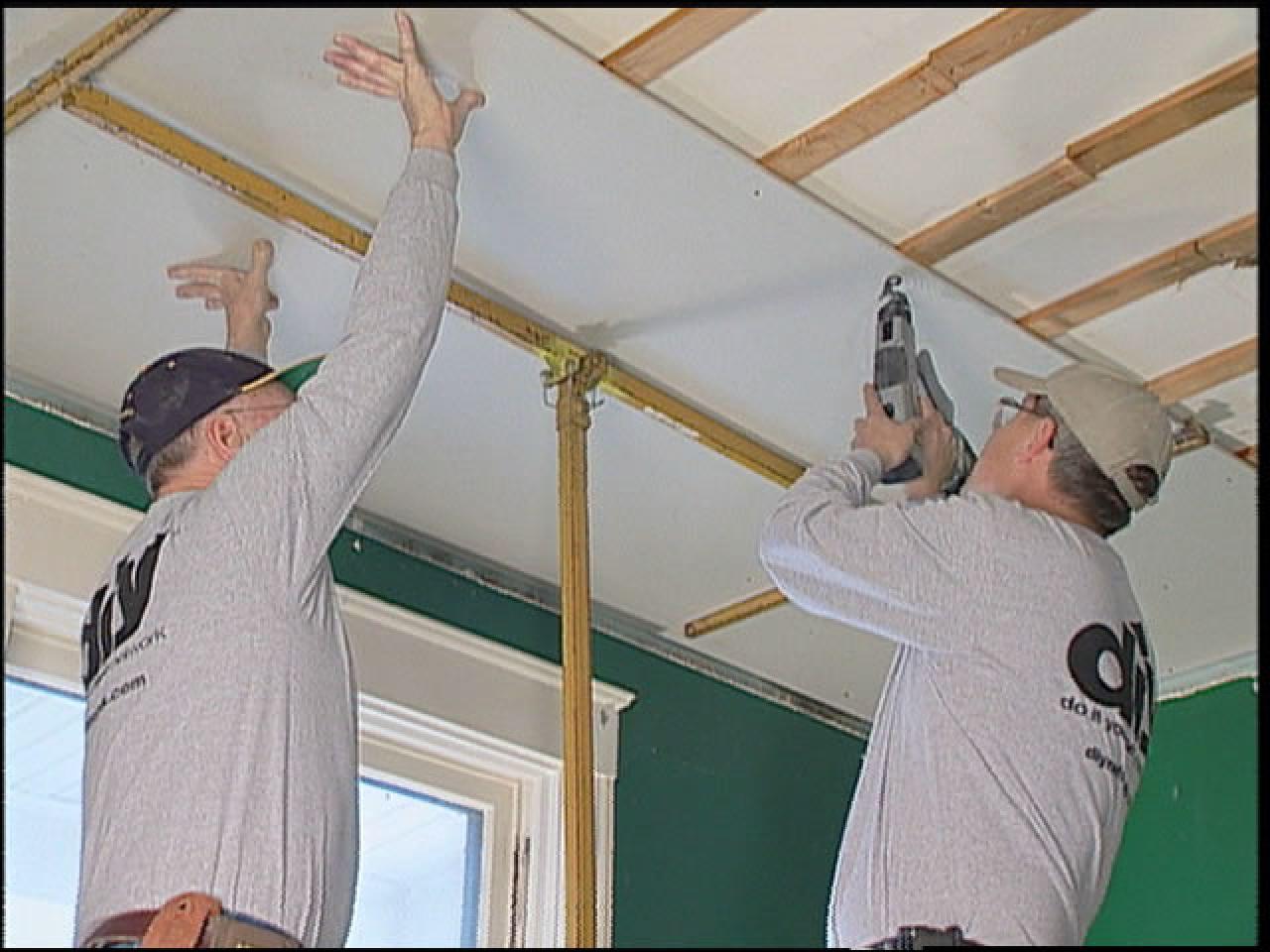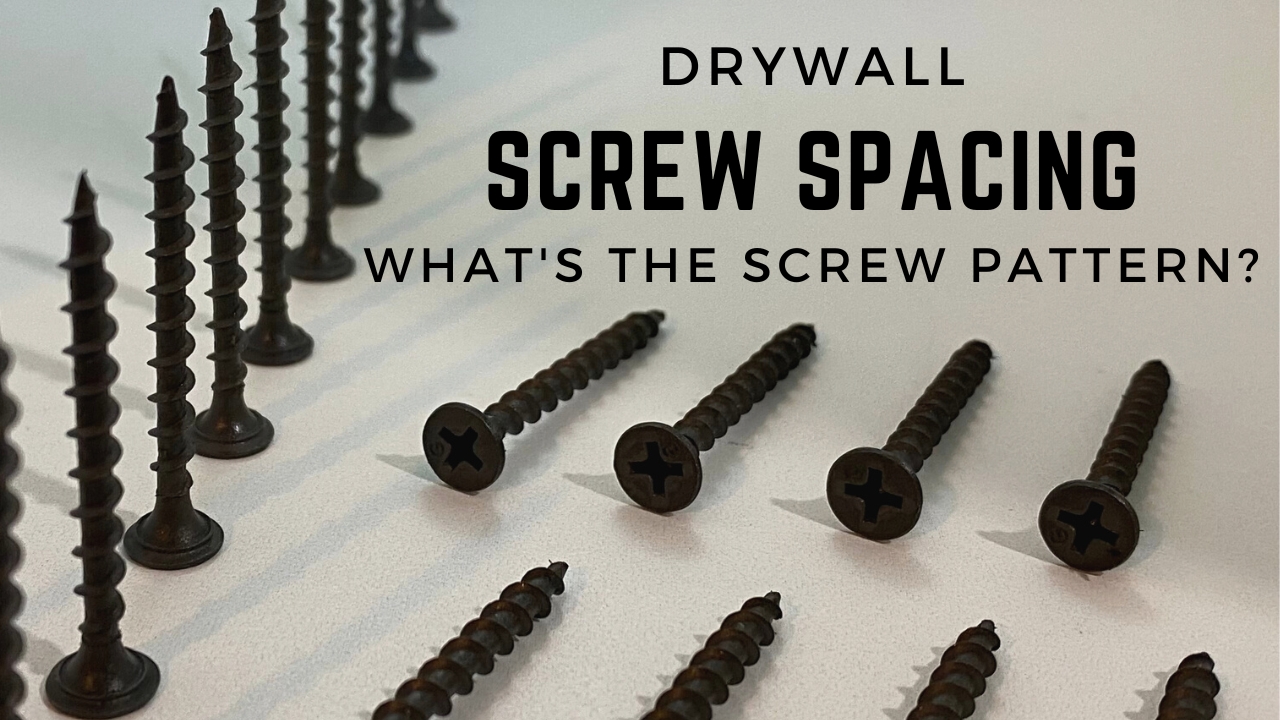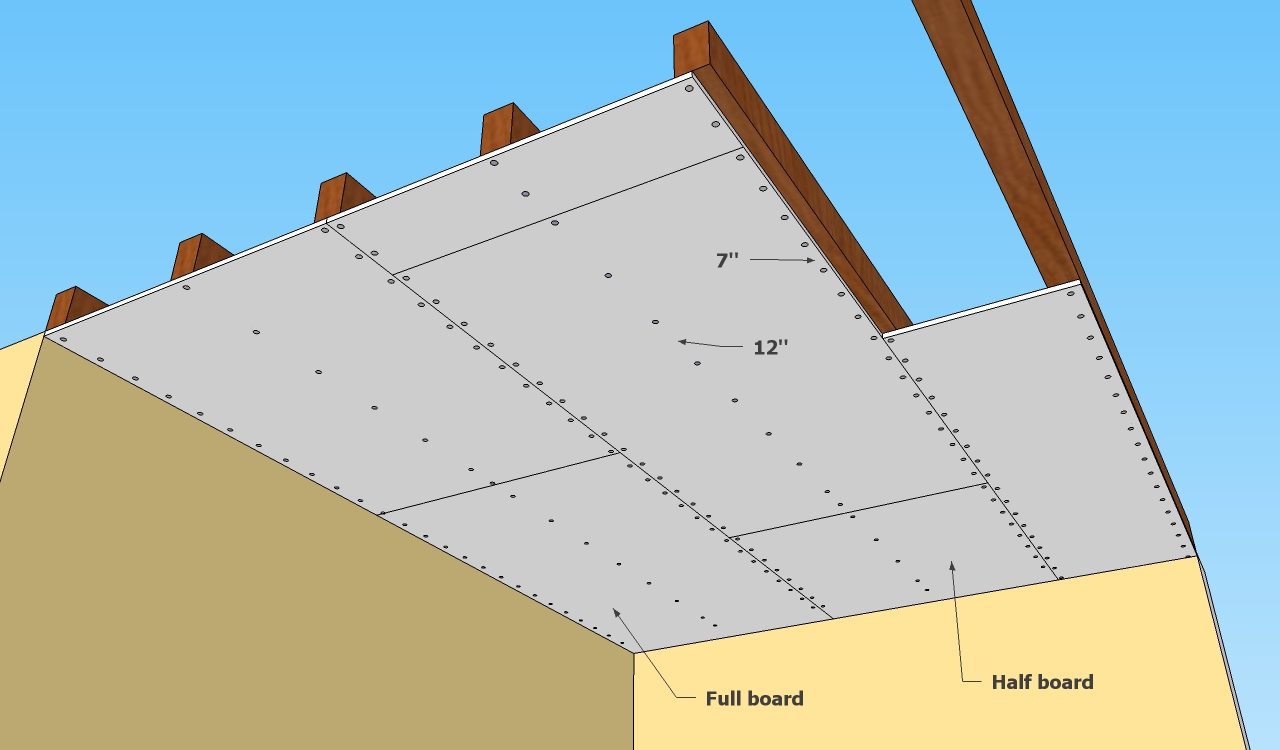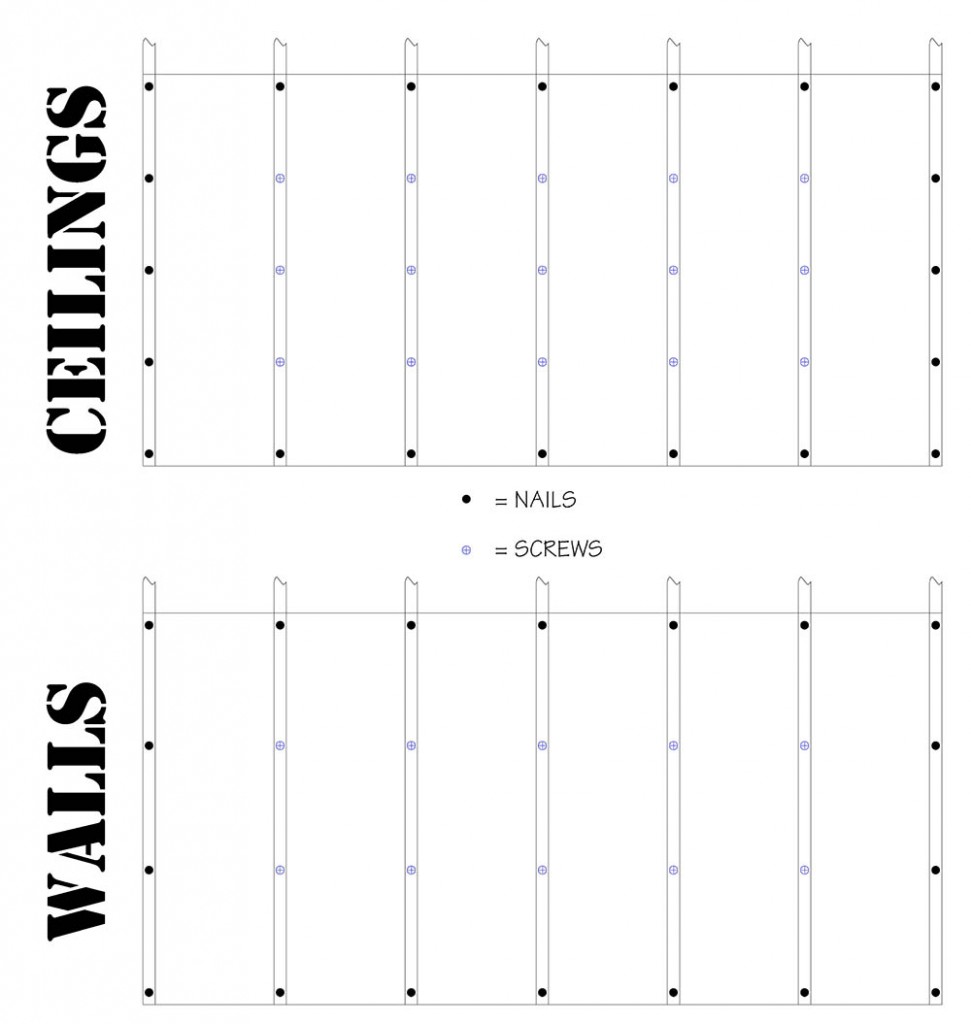/drywall-screw-spacing-guide-4125925-hero-d30c12fcf9d841479c509e95df7c39a0.jpg)
Drywall Screw Spacing and Pattern Guide
Drywall Fastener Spacing . With a cordless drill and coarse thread 1-5/8-inch drywall screws, drive a screw every 8 inches along the entire perimeter of the drywall sheets.. Smooth the joint compound over all drywall screw divots (holes), too. Apply the joint compound as minimally as possible to fill the joint. The more mud you apply, the.

Ceiling Sheetrock Drywall Screw Spacing And Pattern Guide When
For standard 1/2-inch-thick drywall panels, use 1 1/4 -or 1 3/8-inch drywall screws. For 5/8-inch-thick drywall panels, use 1 3/8- or 1 5/8-inch screws. Drywall screws come in both coarse-thread and fine-thread designs. Choose coarse threads when attaching drywall panels to wood studs. Coarse screws aggressively bite into the wood, reducing the.

Business & Industrial BCP442 5000 Qty 6 x 3/4" Sheetrock Drywall
The screw length should be such that the screw penetrates the timber by about 25mm (1 inch) i.e. for 9.5mm thick plasterboard use 32mm long screws, or for 12.5mm thick plasterboard use 38mm long screws. Fixing centres should be about 150mm (6 inches). These is no need to pilot drill holes when using normal plasterboard and the screws should be.
:max_bytes(150000):strip_icc()/drywall-screw-spacing-guide-4125925_v3-HL-5bfdbce7c9e77c00267a7405.png)
Drywall Screw Spacing and Pattern Guide
chappers Member. JCT contract states for 12.5mm board 36mm screws or 40mm galvenized or jagged plasterboard nails. screws should be 230mm centres and nails should be 150 centres and should be no less than 10mm from a bound edge or 13mm from a cut edge and no less than 6mm from a timber edge. chappers, Sep 6, 2006. #8.

What is the Screw Pattern for Drywall? And Why It's Important
When using specialized types of drywall such as Glass-Mat liner panels like the ones used in shaft walls, you should refer to the manufacturer's installation guidelines for number of screws and accepted maximum spacing. This Calculator estimates the maximum spacing allowed between screws or nails. You can enter the type, thickness of sheets.

Choosing The Right Plasterboard Screws
A 12-foot-long sheet will cover approximately 10 studs. If you hang the drywall perpendicular to the studs, you end up using at least 4 screws in each stud. So that adds up to a total of about 40 drywall screws. However, when hanging ½ inch drywall on ceilings with 16 inches O.C. floor joists, screws should be used at least every 12 inches.

24+ Info Populer Planning Layout Of Plasterboard Sheets On Ceilings
6. Nail or screw every 300mm around the ends of the sheet and any openings, avoiding any of the daubs of adhesive. 7. Where the short ends of sheets meet at a stud, nail at 150mm maximum centres or screw at 200mm maximum centres. 8. Drive temporary nails or screws through a small plasterboard offcut into every second stud in the middle of the.
:no_upscale()/cdn.vox-cdn.com/uploads/chorus_asset/file/19495886/hang_drywall_illo_web.jpg)
How to Hang Drywall in 8 Steps This Old House
The basic purpose of drywall screw spacing is to ensure the drywall is properly secured to the wall studs or joists behind it. The recommended spacing for drywall screws depends on the size of the drywall panel being installed. Generally speaking, drywall screws should be placed 8-16 inches apart on each side of a 4×8-foot sheet of drywall.

News Drywall Screws What to Know Before You Buy
When installing drywall screws on the edges of 4'x 8′ drywall panels, it is recommended to use an edge spacing of 8 inches apart. You need to maintain a distance of ½ to ⅜ inch away from the edge of the 4'x 8′ drywall panel. This measured gap prevents issues like crumbled drywall edges and ensures a smooth and durable finish. 2.

42 drywall screws per sheet Pattern diagram DIY Athena
Location and spacing Coating; Screw: Ceilings: approximately 230mm centres (eight per two linear metres) within the field of the plasterboard, and 150mm at plasterboard ends and ceiling perimeters Walls: approximately 300mm centres (five per linear metre), and 200mm on external corners and around openings:
:max_bytes(150000):strip_icc()/drywall-screws-comprehensive-guide-1822768_03-fb0d89cbe05f4406ba896d7f68f062a1.jpg)
Drywall Screws What to Know Before You Buy
The Spruce. This guide dust to general consensus about dry screw spacing and the number the screws per 1/2-inch drywall on picture members that are 16 inches on-center. Introducing adhesives between the studs and the drywall sheets—a common practice in which building trades—further affects screw placement, reducing the overall quantity.

Choosing The Right Plasterboard Screws
With drywall, it means an deviation button prominence in the panels. This guide covers the general consensus concerning drywall screw spacing and the number of screws per 1/2-inch drywall set framing members that are 16 inches on-center. Introducing cling between the studs and the carpet sheets—a common practice in the building trades.

Elevate Design Build Tech Talk Drywall Fastening Methods
Drywall Screw Spacing for Ceilings: Edges: 7 to 8 inches: Drywall Screw Spacing for Ceilings: Field: 12 inches: Number of Screws Per Sheet of Drywall . Use about 32 drywall screws per sheet of 4-foot by 8-foot drywall installed horizontally on a wall. This total is comprised of four screws on the five middle studs and six screws on each of the.

plasterboard screw fixings Plasterboard, Joiner, Cavities, Zinc Alloy
There are a couple of main types of screws available, S-type and W-type. Broadly speaking W-type is for timber frame stud walls, and S-type is for metal frame partitions. S-type screws have much sharper points to penetrate the steel frame. However, there are a plethora of types and sub-types of screws available, which are largely defined on the.
:max_bytes(150000):strip_icc()/drywall-screw-spacing-guide-4125925-05-965c72467ba746f8898e959766639c7d.jpg)
Drywall Screw Spacing and Pattern Guide
Conclusion. Drywall screws should be placed 12 to 16 inches apart, but the distance can vary. Place screws eight inches apart on edges and ceiling edges, and no more than 12 inches apart on the ceiling field. Screws are the most secure and efficient way to hang drywall.
:max_bytes(150000):strip_icc()/drywall-screws-comprehensive-guide-1822768_01-65dba34a39dc4f7fa987947728f3eaeb.jpg)
Drywall Screws What to Know Before You Buy
For 5/8" thick drywall, use screws that are 1 5/8" in length. For 1/2" thick drywall, the most common length of drywall screws is 1 ¼ inch. For thicker drywall sheets, the recommended length is between 1 ⅝ and 2 inches. You may have to adjust slightly based on what materials you are securing the drywall to, but these figures are a.